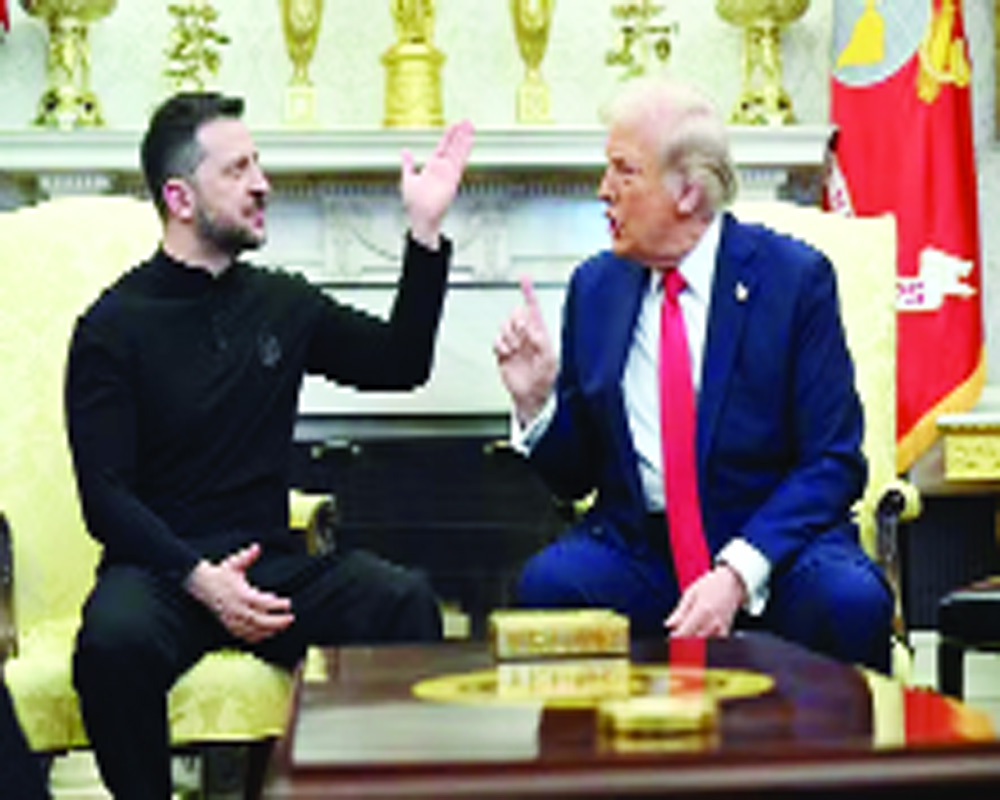A dramatic Oval Office face-off between Trump and Zelensky, marked by sharp exchanges, underscores global political instability
In a high-stakes meeting that captured global attention, President Donald Trump and Ukrainian President Volodymyr Zelensky clashed in a dramatic showdown at the White House. What began as cordial greetings quickly spiraled into an explosive exchange, leaving Zelensky visibly humiliated on the world stage—even as his defiant stance earned him renewed backing from European leaders. The encounter marked the first in-person meeting between Trump and Zelensky since Trump’s return to power in January. Early on, smiles and handshakes gave way to heated words as US Vice President JD Vance pushed for a diplomatic resolution to the ongoing Russia-Ukraine conflict. Vance’s remarks underscored a fundamental point: the need for serious diplomacy to end the war, while also implicitly contrasting Trump’s previous approach with that of past administrations. However, as the dialogue unfolded, Zelensky’s pointed references to the long history of inaction—citing the annexation of Crimea and subsequent military struggles—sparked a vehement rebuttal. In a sequence of rapid-fire exchanges, Trump dismissed Zelensky’s critiques and reminded him of the overwhelming military support provided by the United States, arguing that without this aid, Ukraine’s resistance could have crumbled in days.
Despite the abrasive tone and what many saw as a public humiliation, Zelensky’s resistance during the meeting resonated far beyond the confines of the Oval Office. While Trump’s unconventional style and bombastic rhetoric further alienated many European policymakers, Zelensky’s defiant posture emerged as a symbol of unwavering national resolve. European leaders, long critical of Trump’s erratic diplomacy, viewed the exchange as evidence that Ukraine needed to assert its own dignity in the face of American grandstanding. Moreover, Trump’s harsh social media post demanding Zelensky “come back when he is ready for peace”—served not only as a dramatic moment of political theatre but also as a catalyst for European unity in support of Ukraine. Zelensky’s refusal to be cowed sends a powerful message to both his domestic audience and international supporters. The Zelensky US visit might strengthen Ukraine’s negotiating position and ensure a more coordinated effort to counter Russian advances. Trump’s return to a more unpredictable form of diplomacy has underscored deep-seated divisions within the international community. His blunt dismissals and confrontational tactics risk undermining the credibility of traditional US diplomatic channels, potentially destabilising long-established alliances. In contrast, Europe’s reaction suggests a pivot towards a more measured, collective response that prioritises multilateral engagement over unilateral posturing. This divergence could reshape how global conflicts are addressed in the future, signaling a shift away from “big talk” and towards pragmatic, alliance-based strategies. The Oval Office showdown will likely be remembered as a defining moment in the ongoing Ukraine war and in the evolution of American foreign policy.
























